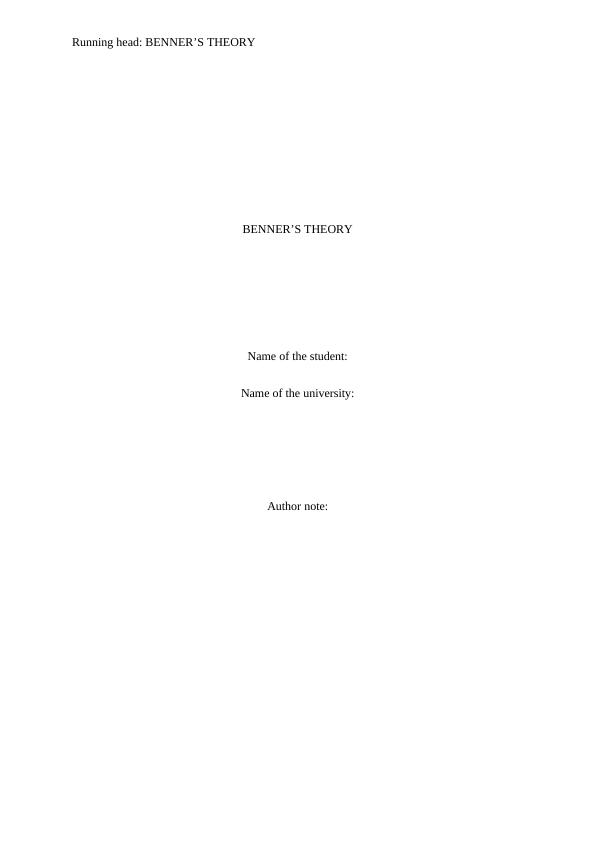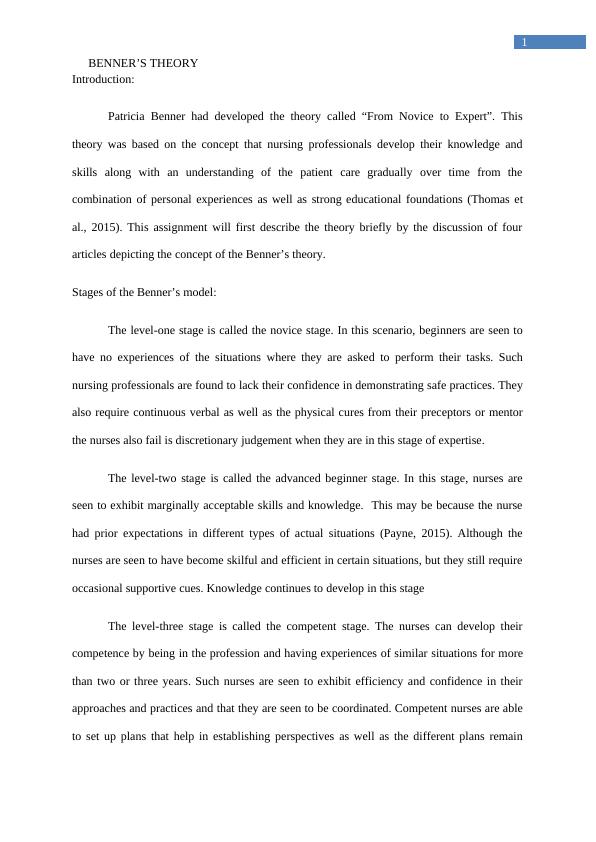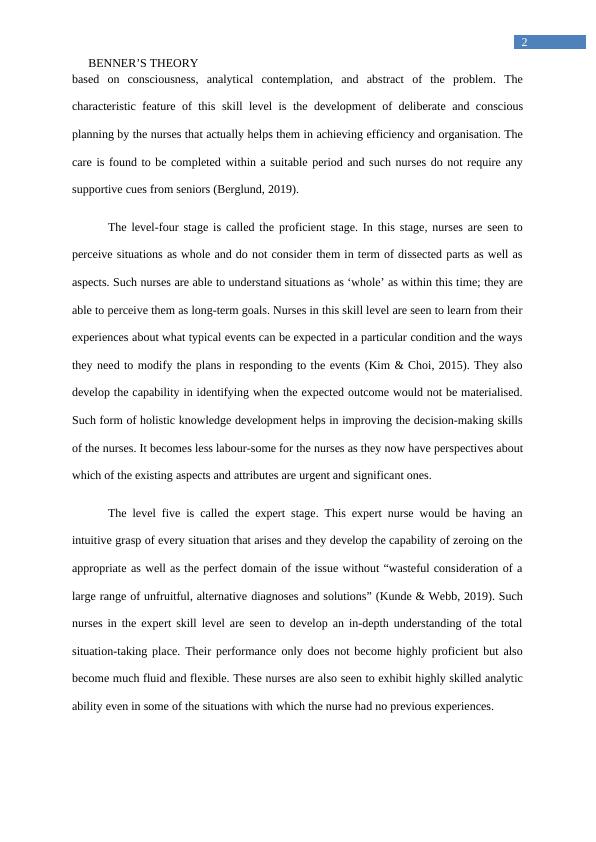Benner's Theory: From Novice to Expert in Nursing
This study guide provides support for the learning journey of the Nursing Knowledge 1 unit, outlining the content and objectives for each teaching session over an 8-week duration.
8 Pages2225 Words324 Views
Added on 2022-12-13
About This Document
This assignment provides an overview of Patricia Benner's theory of From Novice to Expert in nursing. It discusses the stages of skill development and the significance of the theory in shaping nursing education and practice. The assignment also includes an analysis of four articles that explore the application and impact of Benner's theory in the nursing field.
Benner's Theory: From Novice to Expert in Nursing
This study guide provides support for the learning journey of the Nursing Knowledge 1 unit, outlining the content and objectives for each teaching session over an 8-week duration.
Added on 2022-12-13
ShareRelated Documents
End of preview
Want to access all the pages? Upload your documents or become a member.
Benner's Theory: A Guide to Nursing Expertise Development
|9
|2429
|214
Benner’s theory assignment PDF
|9
|2394
|238
Application for Simulation Facilitators by Using Benner's Theory Pdf 2022
|14
|847
|94
Simulation Facilitators: Applying Benner's Theory in Nursing
|14
|858
|497
Benner’s Theory: Novice to Expert
|7
|2161
|47
Benner’s Model in Relation to the Article
|10
|1038
|215



